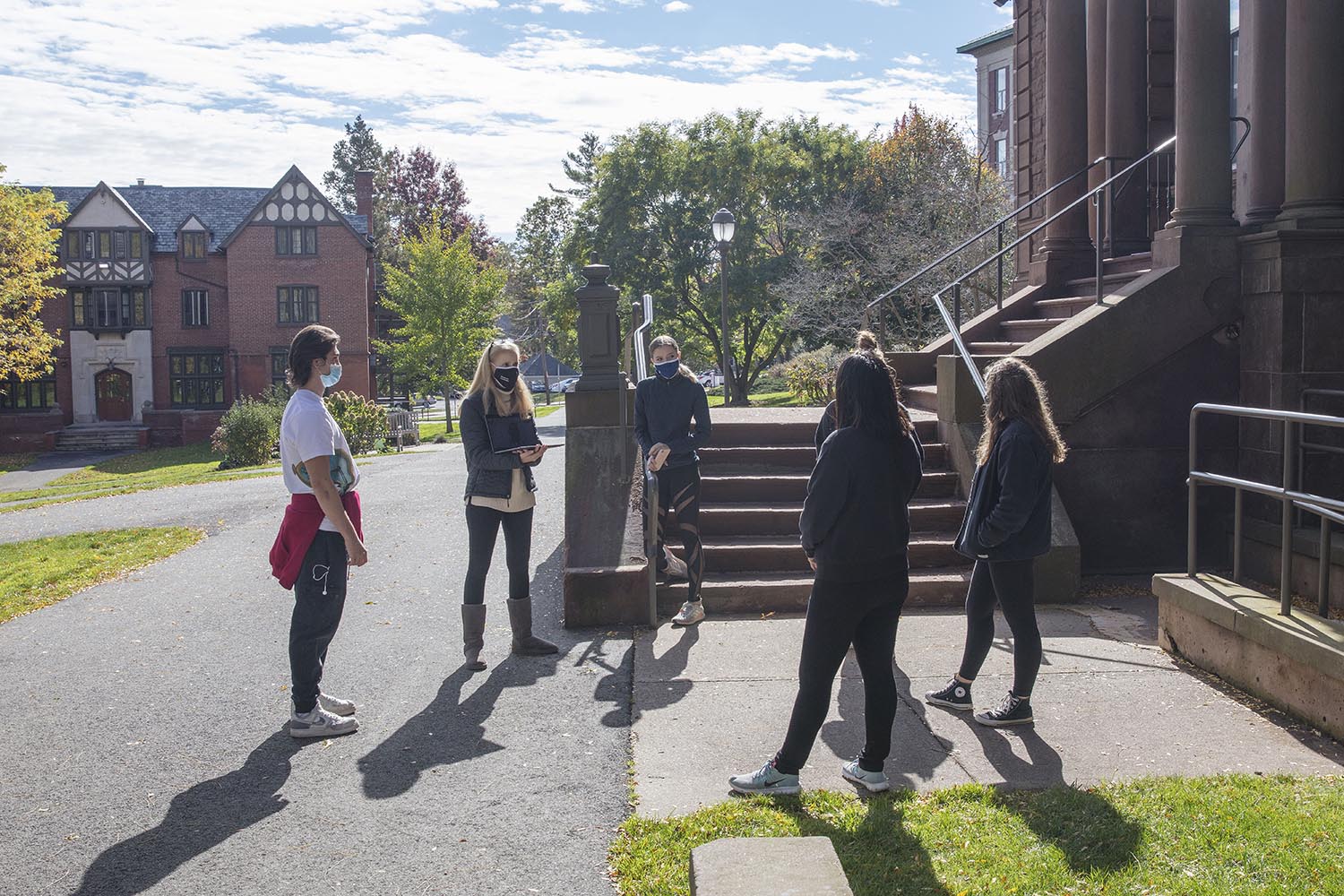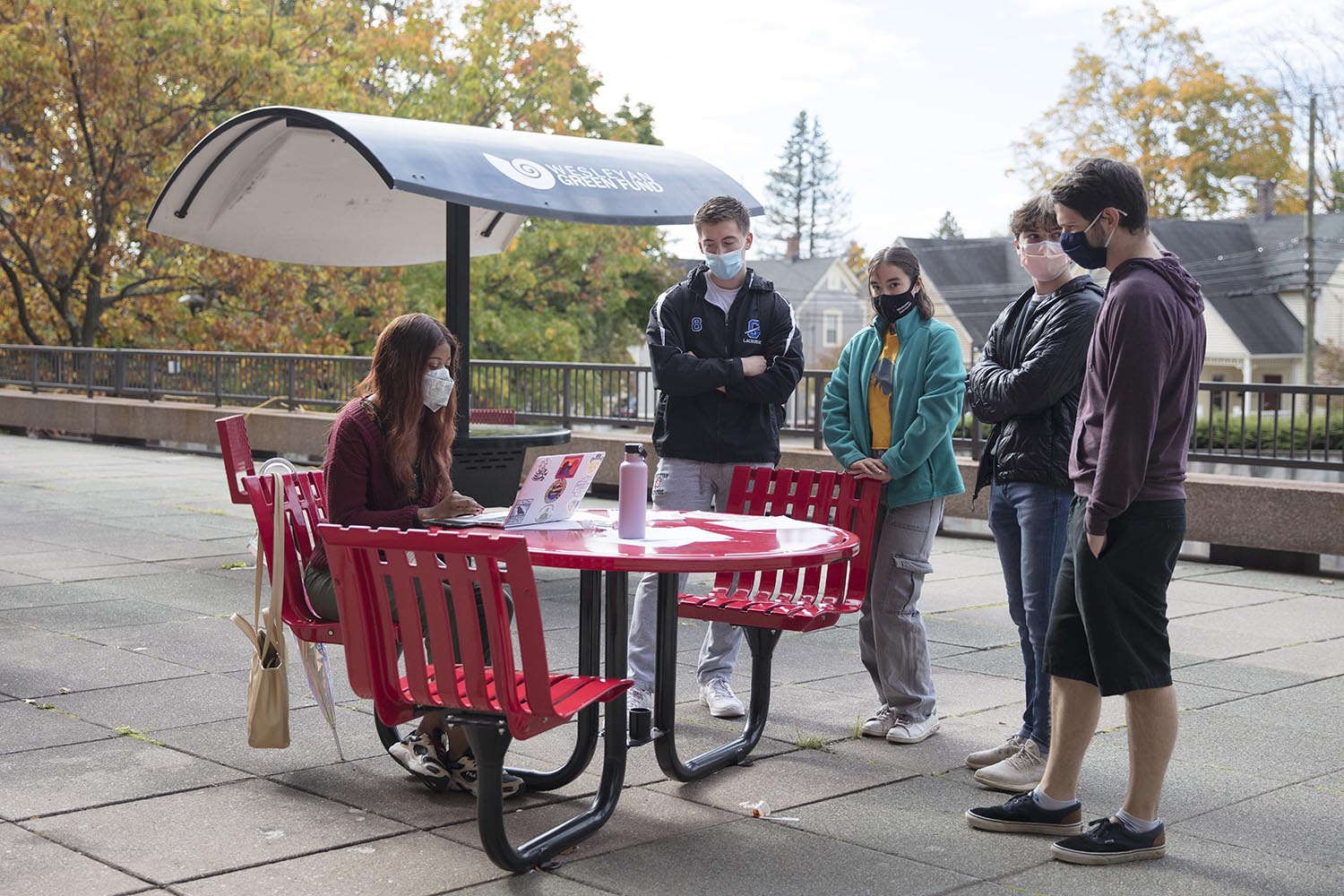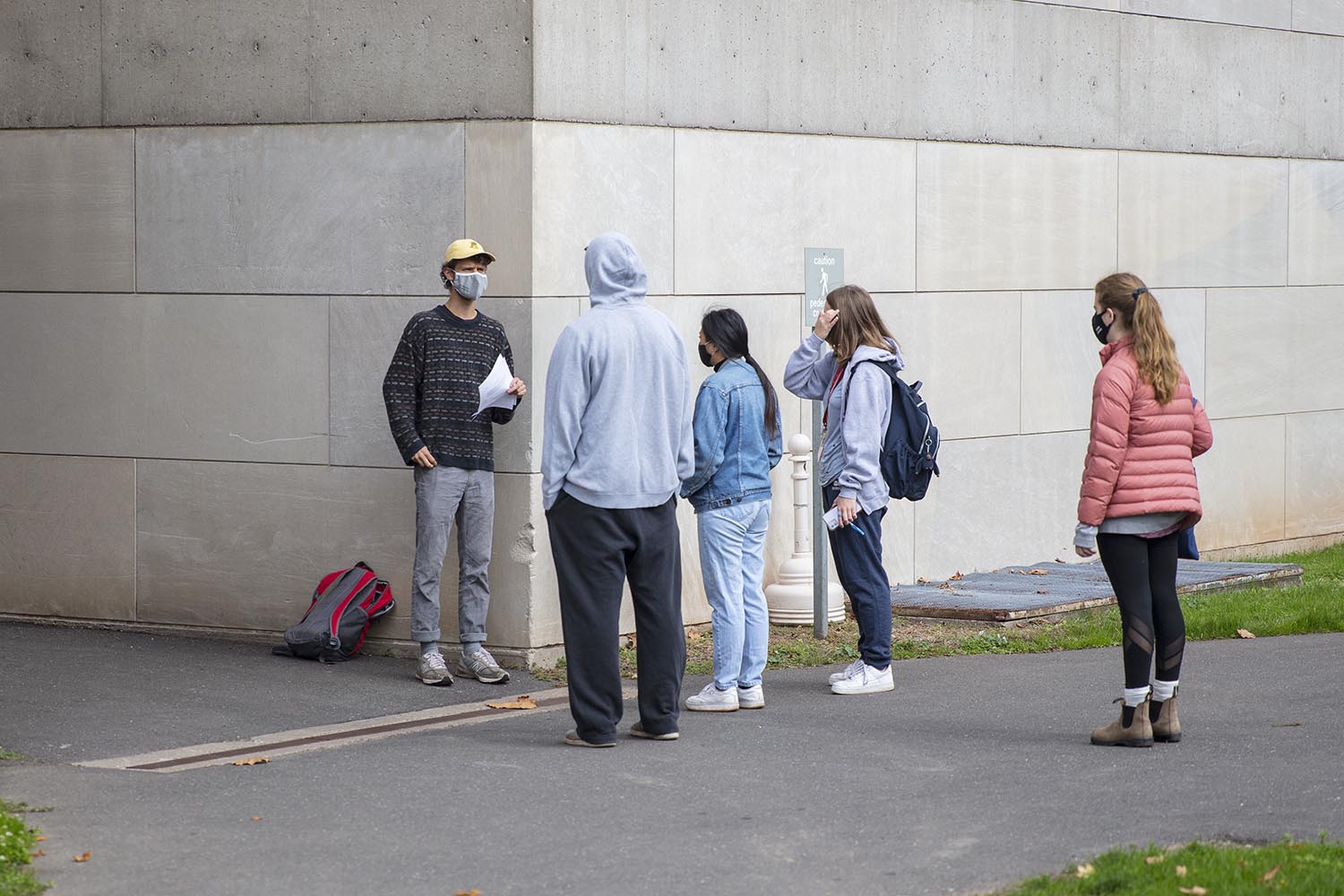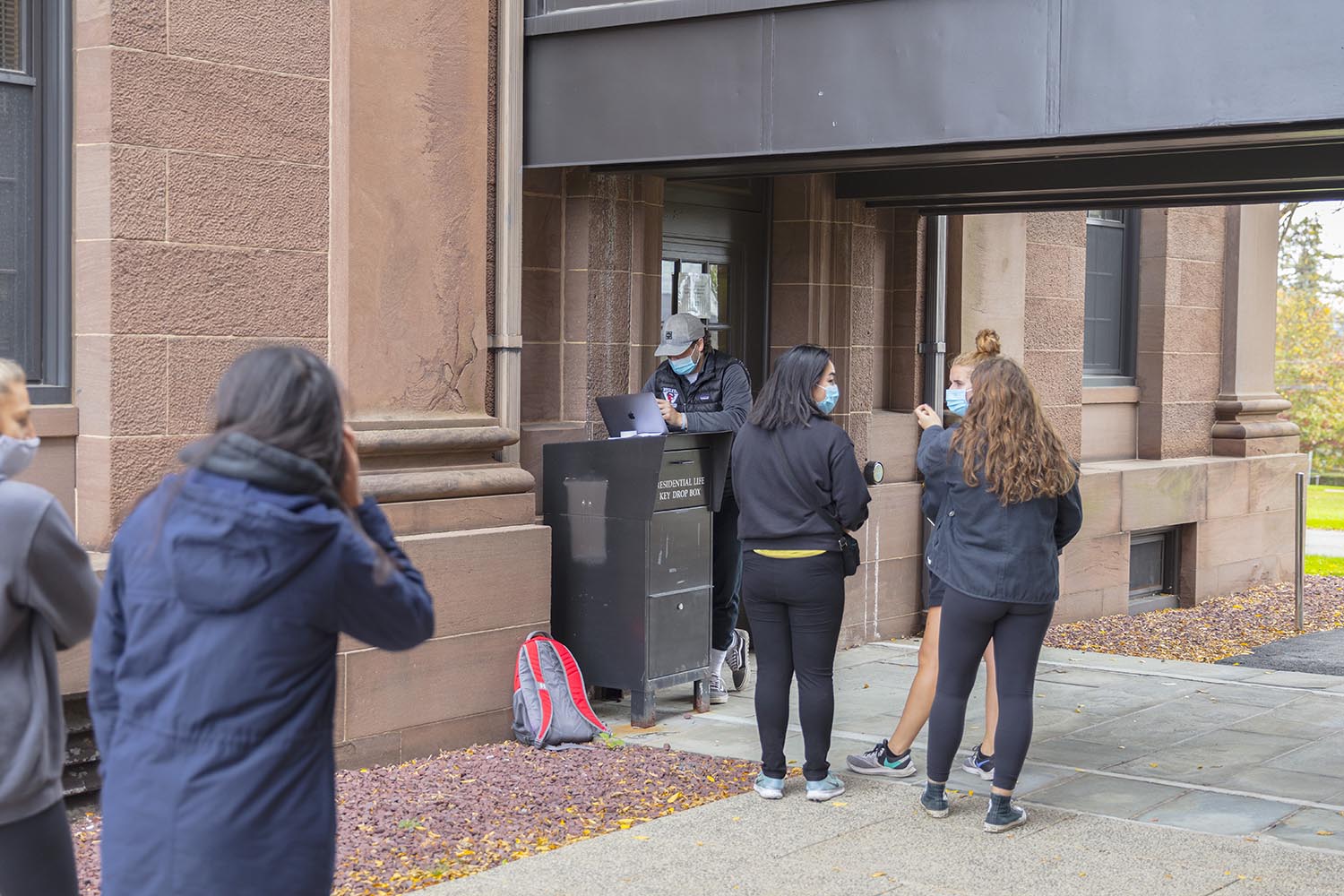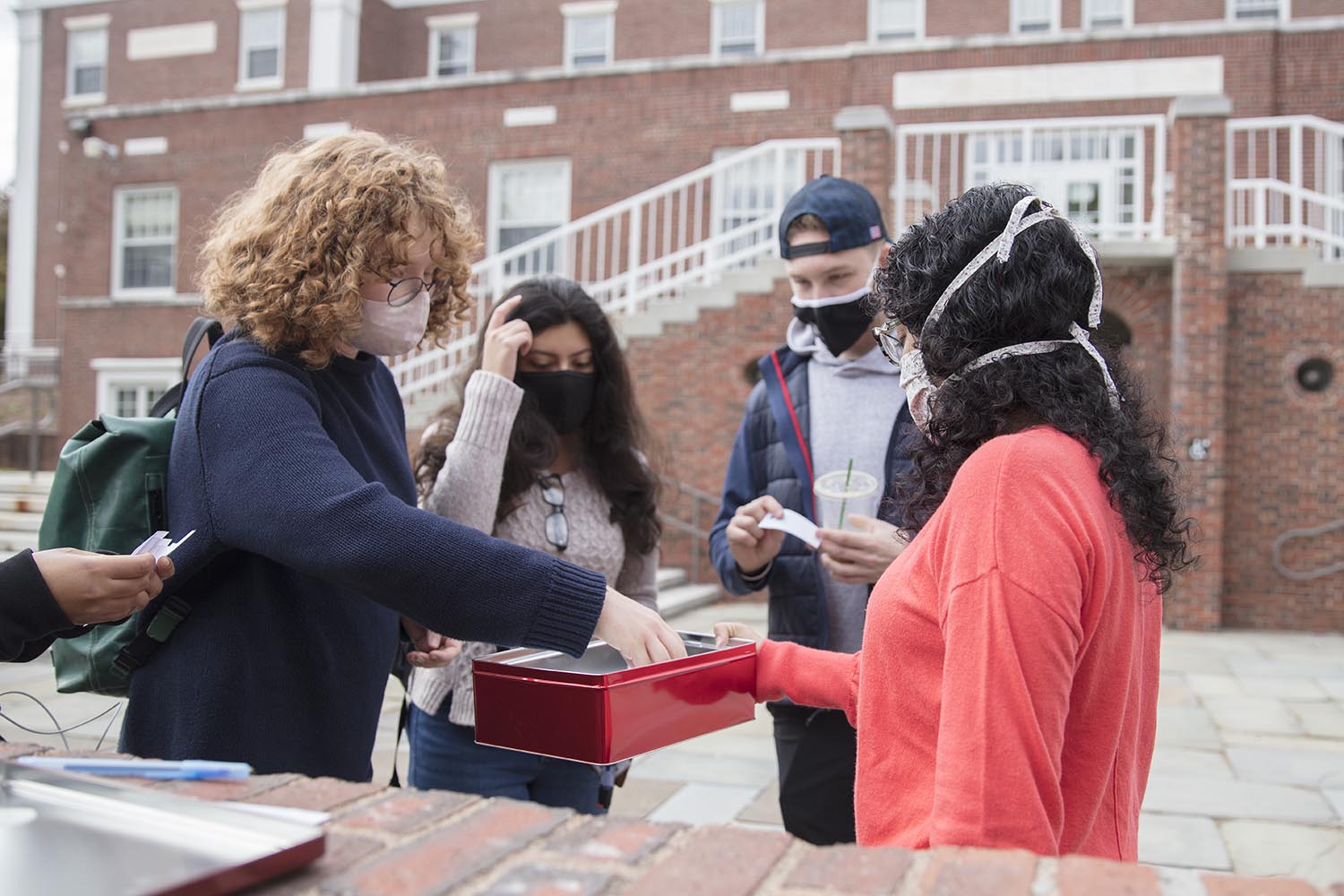Psychological Scavenger Hunt Helps Alleviate Zoom Fatigue
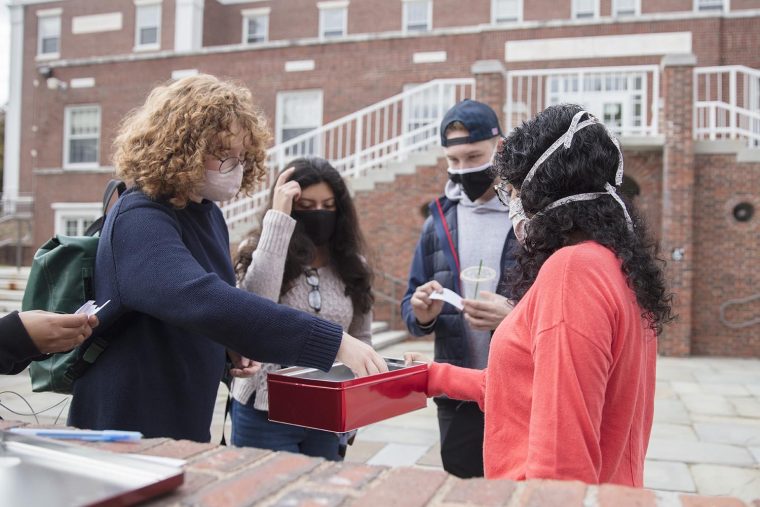
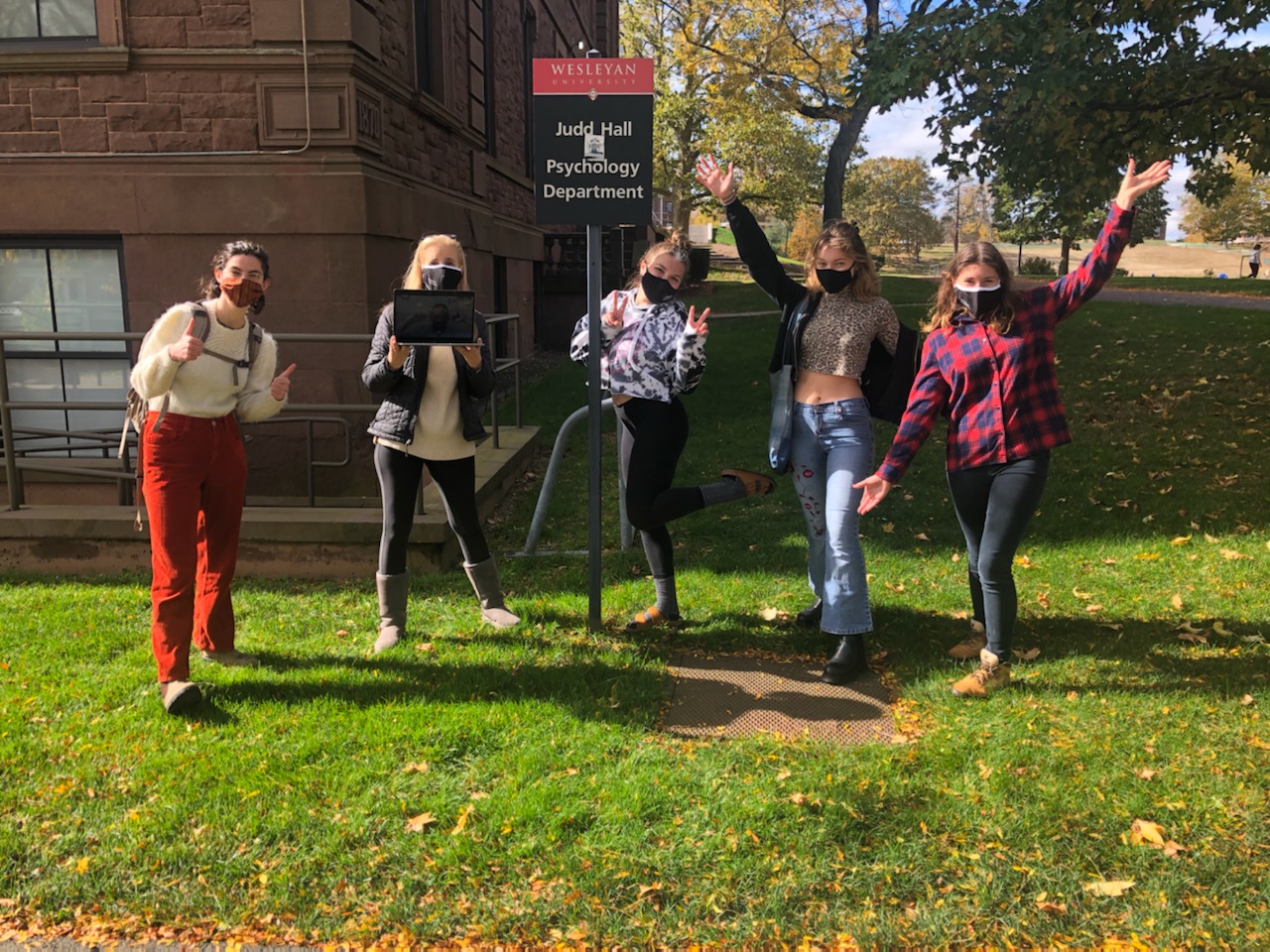
This fall, the introductory-level course PSYC 105: Foundations of Contemporary Psychology is being taught entirely online to 200 students due to the COVID-19 pandemic.
After six weeks of remote lectures and interactive breakout sections via Zoom, Professors Steve Stemler and Sarah Carney who are team-teaching the course, hoped to break the “Zoom fatigue” routine and get their students physically interacting. So working together with the eight course TAs, they created a campus-wide psychological scavenger hunt.
With the first wave of students participating on Oct 27, and other waves participating subsequently, more than 110 students participated in the activity in person, while others joined in virtually.
“This was a fun way of doing some course-relevant activities while getting students out and about and interacting with each other,” Stemler said.
The instructors and TAs worked hard to ensure the scavenger hunt adhered to all COVID-19 protocols by keeping team sizes small, start times staggered, and locations spread out across campus and outside.
During the hunt, students worked in groups of four and looked for clues at various campus locations. The clues led them to a station run by a teaching assistant, who asked the undergraduates to complete a task relevant to the course content.
At an “intelligence station,” for example, the groups engaged in a word recognition test that relies on past experiences to prime their perceptions. At a “consciousness station,” students were asked to write down five things about themselves, and then the TA shuffled around their cards. After the cards were revealed, students had to categorize the notes as belonging to the social self, spiritual self, or material self in accordance with William James’ theory of the empirical self. And at a “methods station,” students read a description of a fictional research study and were allowed to ask 10 follow-up questions. The goal of that activity was to get students thinking about what information they wanted to know and why in order to evaluate the validity of the study rather than simply recalling the correct answers about the study design.
The scavenger hunt also led students to stations on memory, cognition, and bystander intervention.
The Teaching Apprentices for the course are Nolan Collins ’23, Maya Verghese ’23, Sarah Hammond ’22, Charity Russell ’21, Will Ratner ’22, Christian Quinones ’22, Arianna Jackson ’22, and Ezra Levy ’21.
Photos of the scavenger hunt on Oct. 27 are below: (Photos by Simon Duan ’23)
